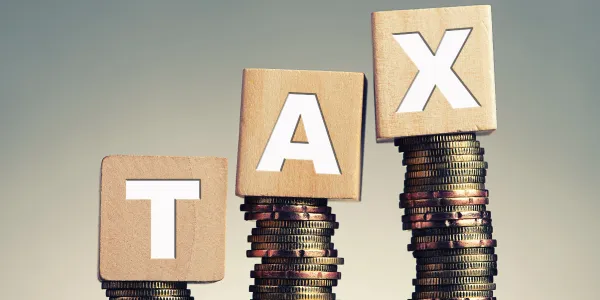
A Brighter Future
June 7, 2024
Are Millennials More Charitable?
June 7, 2024Highlights of the New 2018 Tax Code and How it Helps US Businesses
Are you trying to understand the new 2018 Tax Code? If so, you are in the right place. In this article, we are going to explore the main highlights of the New Tax Code and see how it affects self-employed taxpayers and, of course, small businesses. Let’s dive in.
Business meal deductions are no longer available
What does this mean? Basically, businesses and freelancers who like getting work done over a business dinner or drinks can no longer deduct those expenses regardless of who pays. However, there is an exception to this rule. Deductions are allowed for hosting parties and events for your employees. Besides, meals and drinks bought during business travel are also deductible.
Not the best or the worst news for businesses.
Territory taxation for multinational corporations
Under the previous tax code, US corporations were paying corporate income tax on both domestic and foreign profits. However, there were tons of ways they could avoid paying domestic taxes by characterizing them as earned overseas.
There were even some examples of multinational corporations breaking the terms of intercompany transactions and transferring money to their foreign affiliates in order to avoid paying domestic taxes.
To stop this, under the new Tax Bill, the territorial system of taxation is subject to new base erosion rules. Included in this are the anti-avoidance tax and foreign minimum tax rules on global intangible low-taxed income.
Mind the laws if you own a multimillion-dollar multinational corporation!
The maximum corporate tax rate is reduced to 21%
Previously, the maximum corporate tax rate was 35%. Now the maximum rate is 21%. This means that taxpayers who exceed the threshold for the 20% pass-through deduction can now relaunch their business as a C corporation. This will allow them to cut self-employment taxes and gain benefits from the new lower tax rate.
Something exciting is happening here for C corporations and personal service corporations!
The timeline for the changes might be hard to handle
The new 2018 Tax Code changes took effect at the beginning of 2018. But most probably, it will take businesses a while to see the outcomes of these changes. For example, corporations and enterprises have created their growth plans for the year. But they will have to or already had adjusted those plans (and their finances as well) based on the new Tax Code. This might cause delays in gearing up those corporations.
Unbuckle your seatbelts, dear corporations. It might take some time for the corporate growth plane to take off.
What stands behind these changes?
The new 2018 Tax Code was intended to provide advantages for the middle class and small business owners. At least that is what the Trump administration says. According to House Speaker Paul Ryan (R-WI), middle-class households will get bigger paychecks as a result of this change. With this tax code change, the government seems to be trying to solve the recent economic hardships that people were facing.
Thus, the most significant change that will affect you as a small business owner in the United States is that it will be easier for you to convert your pass-through entity to a C corporation, thus enjoying lower tax rates.
As a matter of fact, these changes were quite major as compared to those made over the last 30 years. For small business owners, these tax cuts may provide a significant benefit. And the Republicans seem to believe that by reducing taxes on these groups, the US will see significant economic growth. It will definitely be clearer by the end of 2018 whether these changes encouraged people and especially small business owners to reinvest their funds into their businesses or not.
Final thoughts
Let’s hope that the rewrite of the tax code brings benefits and positive outcomes for all of us. With the upcoming 2018 elections, Republicans in both the House and the Senate are looking to use the success of the tax code reform in their efforts at reelection. The real question is whether the effects will be felt by the time November rolls around.
Even if the reform brings relief this year, it is unclear if it will last. The majority of economists surveyed by the Wall Street Journal expect to see a minor economic boost between 2018 and 2019. However, after that, they don’t seem to be agreeing on anything. Opinions differ.
Does this basically mean that after two years, the new 2018 Tax Code might become a failure? Time will tell. Let’s hope for the best!




